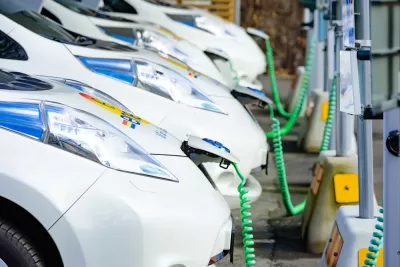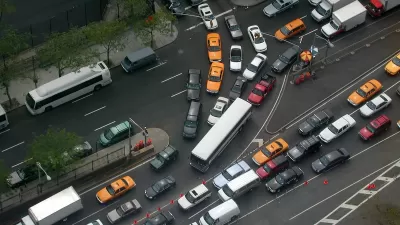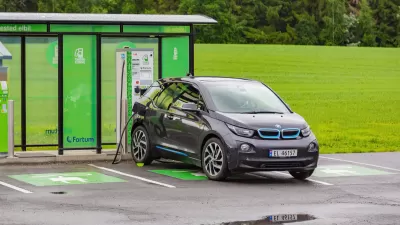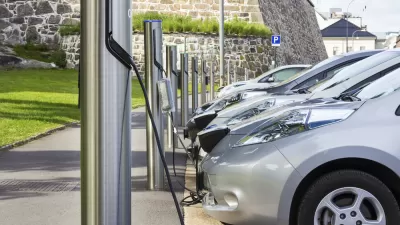Lower-income households often lack the resources to buy electric cars, signaling a need for a more holistic approach to improving mobility and lowering transportation costs.

A new report from the Transportation Energy Institute suggests that an equitable approach to transportation must include more than just a shift to electric cars. “The report also notes that lower-income communities often face multiple transportation-related environmental issues, such as proximity to highways and industrial pollution.”
As Dan Zukowski explains in Smart Cities Dive, “Access to electric vehicle charging equipment and the high cost of EVs limits low-income households’ ability to take advantage of these lower-emission vehicles, the paper says, and many depend on conventionally fueled vehicles.” Thus, lower-income communities need investment in public transit and other mobility options that can reduce their transportation costs and offer more sustainable options.
“Direct, meaningful engagement with such communities enables residents to have a say in the transportation policies and projects that could address their specific needs, [the report] says.” The report provides a set of questions that policymakers can use to better understand their communities’ needs and bridge gaps in access to transportation.
FULL STORY: Are EVs the best approach to transportation equity? Maybe not, TEI report says

Maui's Vacation Rental Debate Turns Ugly
Verbal attacks, misinformation campaigns and fistfights plague a high-stakes debate to convert thousands of vacation rentals into long-term housing.

Planetizen Federal Action Tracker
A weekly monitor of how Trump’s orders and actions are impacting planners and planning in America.

Chicago’s Ghost Rails
Just beneath the surface of the modern city lie the remnants of its expansive early 20th-century streetcar system.

Bend, Oregon Zoning Reforms Prioritize Small-Scale Housing
The city altered its zoning code to allow multi-family housing and eliminated parking mandates citywide.

Amtrak Cutting Jobs, Funding to High-Speed Rail
The agency plans to cut 10 percent of its workforce and has confirmed it will not fund new high-speed rail projects.

LA Denies Basic Services to Unhoused Residents
The city has repeatedly failed to respond to requests for trash pickup at encampment sites, and eliminated a program that provided mobile showers and toilets.
Urban Design for Planners 1: Software Tools
This six-course series explores essential urban design concepts using open source software and equips planners with the tools they need to participate fully in the urban design process.
Planning for Universal Design
Learn the tools for implementing Universal Design in planning regulations.
planning NEXT
Appalachian Highlands Housing Partners
Mpact (founded as Rail~Volution)
City of Camden Redevelopment Agency
City of Astoria
City of Portland
City of Laramie





























